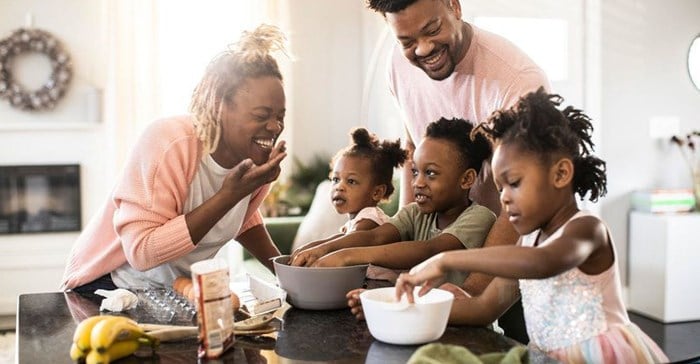It's been almost 30 years since the Black middle-class was seeded in South Africa and there is much to be learnt from this consumer segment's resilience and from its definition of financial freedom.
"One thing we can say for certain is that there's a very clear upward trajectory for the Black middle-class, and that is correlated in almost every data set that you look at," said Martin Neethling, the chief marketing officer of PepsiCo sub-Saharan Africa.
He was giving the opening speech at this year's launch of the 2022 Black Middle Class Report by the UCT Liberty Marketing Institute at the Vineyard Hotel this month.
The report reveals the Institute's findings from its surveys and interviews of more than 1,900 middle-class households over a year, which highlights the Black middle-class's significant and continued rise, and the trends which will likely influence and entrench the BMC as the foremost consumer market into the future.
Among the key speakers at the event were Zandile Makhoba lead expert: research and analytics at UCT Liberty Marketing Institute; public figure Thabo "Tbose" Mokwele and Neo Makhele, the chief strategy officer at Ogilvy South Africa.
"Key to understanding the impact of the BMC on our economy is coming to an understanding of what the BMC actually is," said Neethling.
According to the Institute's report, the Black middle-class makes up 7% of South Africa's Black population, excluding Indians, Coloureds and Black Africans from other countries.
At 3.4 million people, they make up almost half of South Africa's total middle-class count of 7 million people.
They have a combined spending power of R400bn per year, make up one million of SA's households, and account for 14% of all consumer expenditure in the country.
This consumer segment is defined by households that have an income of between R22,000 and R40,000 per month, and distinguishes between the BMC and upper Black middle-class.
Findings show that 26% of the BMC are located in rural areas.
Middle-income versus middle-class
Neethling, however, went on to further make a distinction between the middle-income position and middle-class, saying the two are not the same.
The middle-income position, he said, refers to the consumer segment where the household income is just under R22,000, while middle-class refers to households with an income of R22,000 per month and above. While research suggests the Covid-19 pandemic has accelerated the decline of SA's middle-income group with many struggling to pay bills and drowning in debt, the Black middle-class has been resilient through the pandemic.
70% of the BMC cited they were not worse off financially as a result of the pandemic, according to Dr James Lapperman, head of projects at the institute and report co-author.
Who are the frontrunners?
The panelists at the launch referred to three demographics within the BMC: the Mafikizolos, namely new entrants; the 2nd wavers; and the frontrunners - those well-established, who have been in the middle-class for a while and are quite settled.
Ogilvy's Makhele further made the distinction between the strivers and thrivers within this consumer segment. The strivers, she said, were primarily focused on achieving goals - "the symbols of wealth" such as an education, a car, a house - while thrivers' priorities are less focused on the status these milestones bring and are more focused on the legacy of these investments.
"Thrivers are trying to attain generational wealth," she said. "They're trying to get more than one income stream, they're wanting to own their own businesses, they're wanting to acquire multiple properties, and are wanting to have enough money so they don't have to rely on their children for support.
"They're investing in their kids. People are talking about their kids learning multiple languages, making sure their kids can integrate into the global world of work. They're rebuilding their financial smarts with multiple investment streams: easy equities, shares and endowment policies."
Indicators of success
The keys to the consumer segment's success, Makhele believes, is attaining education, skilled employment, and realised aspirations.
"Skilled employment is the calling card of our middle-class today, in particular our Black middle-class. If you have skills, you are going to improve your circumstances. If you have skills, you are going to get better jobs. If you've got skills, you're going to have a higher household income," Neethling said.

Source: BizCommunity. Neo Makhele, Chief Strategy Officer at Ogilvy South Africa.
Another key indicator for the BMC's success, said Makhele, is their social capital, which is grounded in research and the intangible resources they gain from social interactions, their relationships and networks built on trust, reputation and goodwill.
"Research shows that people who are in organisations and communities where they have rich stock in social capital are more likely to be healthier and happier," Makhele said.
Another top indicator, she said, is codeswitching. "Codeswitching refers to the ability to navigate the cultures in society well. It's about figuring out how to talk about personal branding with a particular audience, about figuring out how to empathise or engage with someone who is culturally different to me so that I can connect."
Most importantly is the consumer segment's priority around paying it forward in society.
"Giving back becomes a critical investment strategy because when you give back, you get so much back. Generating generational wealth is a key theme among thrivers, the BMC report has found, and when marketers speak to this segment of society it's imperative to understand: they want their children and community to be in a better place than they were 30 years ago.
"It's about breaking from the patterns of poverty thinking, breaking from the generational cycle of bondage. People are trying to break every chain that holds them back and out of bondage," Makhele said.
Inequity remains, however
But while the middle-classes are the bulwark for economic development and success, the disparity that exists between the White and Black middle-class remains to be addressed.
"There's a belief that once people hit the middle-class they behave more or less the same, that's not completely true when you compare the Black middle-class cohort with the White middle-class," Neethling said. There are about one million more people in the BMC than the WMC, with the total number of kids in each household varying: 5.5 kids on average in a BMC household compared to 3.5 kids in a WMC household.
"Members are of a much younger age in BMC homes, and a far greater variety of languages are spoken in those homes."
Stephen Langtry 19 Sep 2022 "When it comes to savings to weather tough economic times, 10% of the BMC said they had R100,000 or more saved, compared to 37% of White middle-class counterparts who said they had R100,000," Makhoba further pointed out.
"On average, looking at household income, there is already a R16,000 difference between a BMC income household versus the White middle-income household."
"These families might be living alongside each other - but on average the BMC cohort has a completely different make-up to its white neighbours," Neethling said.
Where is the BMC headed?
But what does the future hold for the BMC? "In the next two decades you'll see that there'll be a bigger, stronger messaging regarding retirement," said Thabo Mokwele, Kaya 959 radio personality. "From 1994 to now we have forerunners, those who are just about 50 years of age now, those are the guys who are thinking legacy, thinking retirement.
"We're asking the questions: Do I have a house? Have I seen enough of the world? Is there a gap between what I need right now to what I will need when I retire? Should I retire, will I be a burden on those behind me? Have I created enough generational wealth that the next generation can take forward?"
The definition of retirement for the BMC seems to be in flux.
Adds Mokwele: "I'm asking do I really want to retire or do I want another life? If employment is a gateway to retirement: can I use the money that I have to open a business?
"Will I retire when I'm dead?"
Lapperman explains: “In the next 20 years, we’re going to be seeing the first major wave of black middle-class retiring. What this will look like is still open to interpretation as research into black middle-class retirement is still limited."
And, cautioned Lapperman, when it comes to BMC retirement strategies, be wary of “copy-and-paste strategies from the past".
"Major shifts in this regard should be anticipated."













































